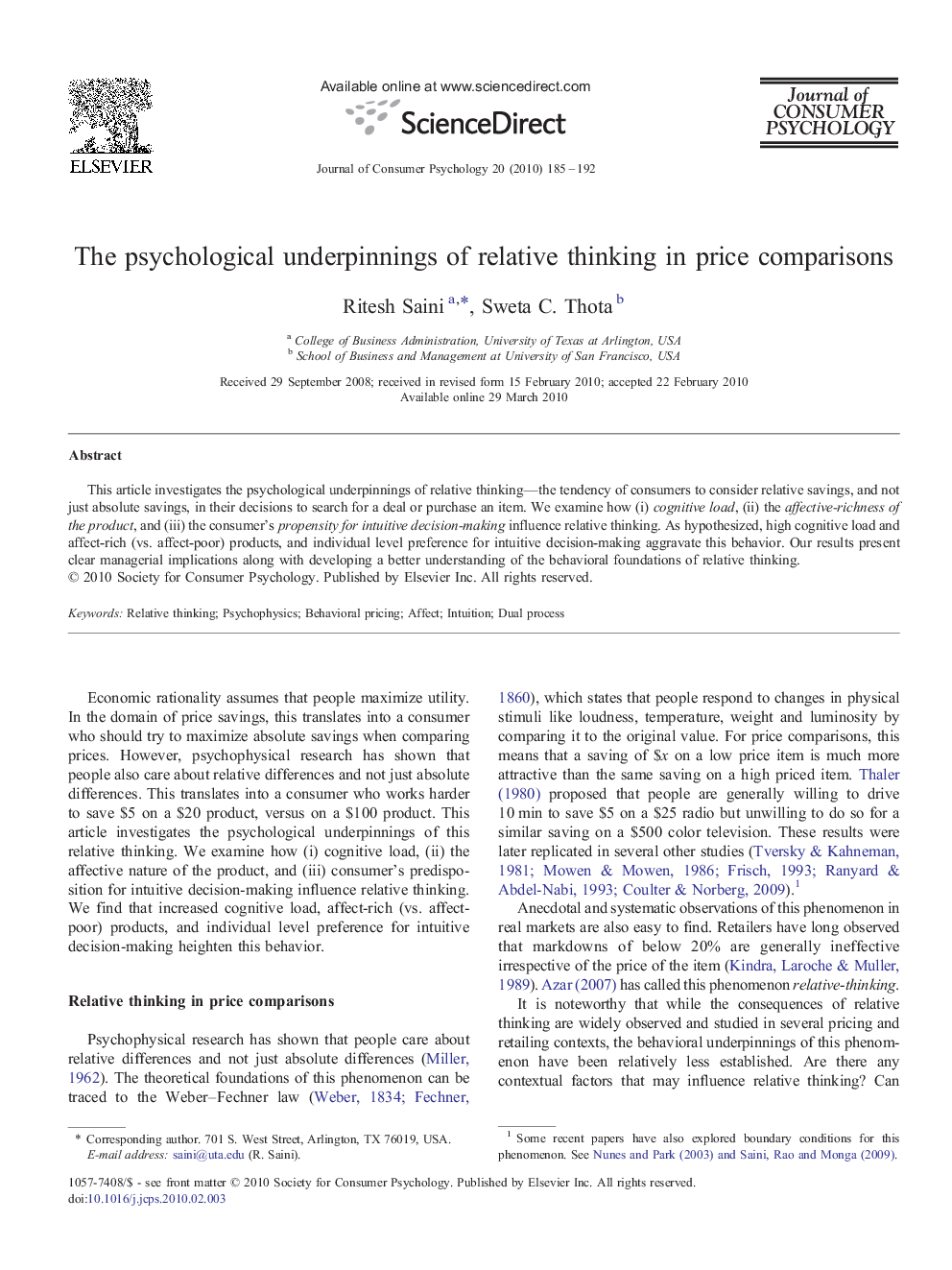| Article ID | Journal | Published Year | Pages | File Type |
|---|---|---|---|---|
| 882356 | Journal of Consumer Psychology | 2010 | 8 Pages |
Abstract
This article investigates the psychological underpinnings of relative thinking—the tendency of consumers to consider relative savings, and not just absolute savings, in their decisions to search for a deal or purchase an item. We examine how (i) cognitive load, (ii) the affective-richness of the product, and (iii) the consumer's propensity for intuitive decision-making influence relative thinking. As hypothesized, high cognitive load and affect-rich (vs. affect-poor) products, and individual level preference for intuitive decision-making aggravate this behavior. Our results present clear managerial implications along with developing a better understanding of the behavioral foundations of relative thinking.
Related Topics
Social Sciences and Humanities
Business, Management and Accounting
Marketing
Authors
Ritesh Saini, Sweta C. Thota,
